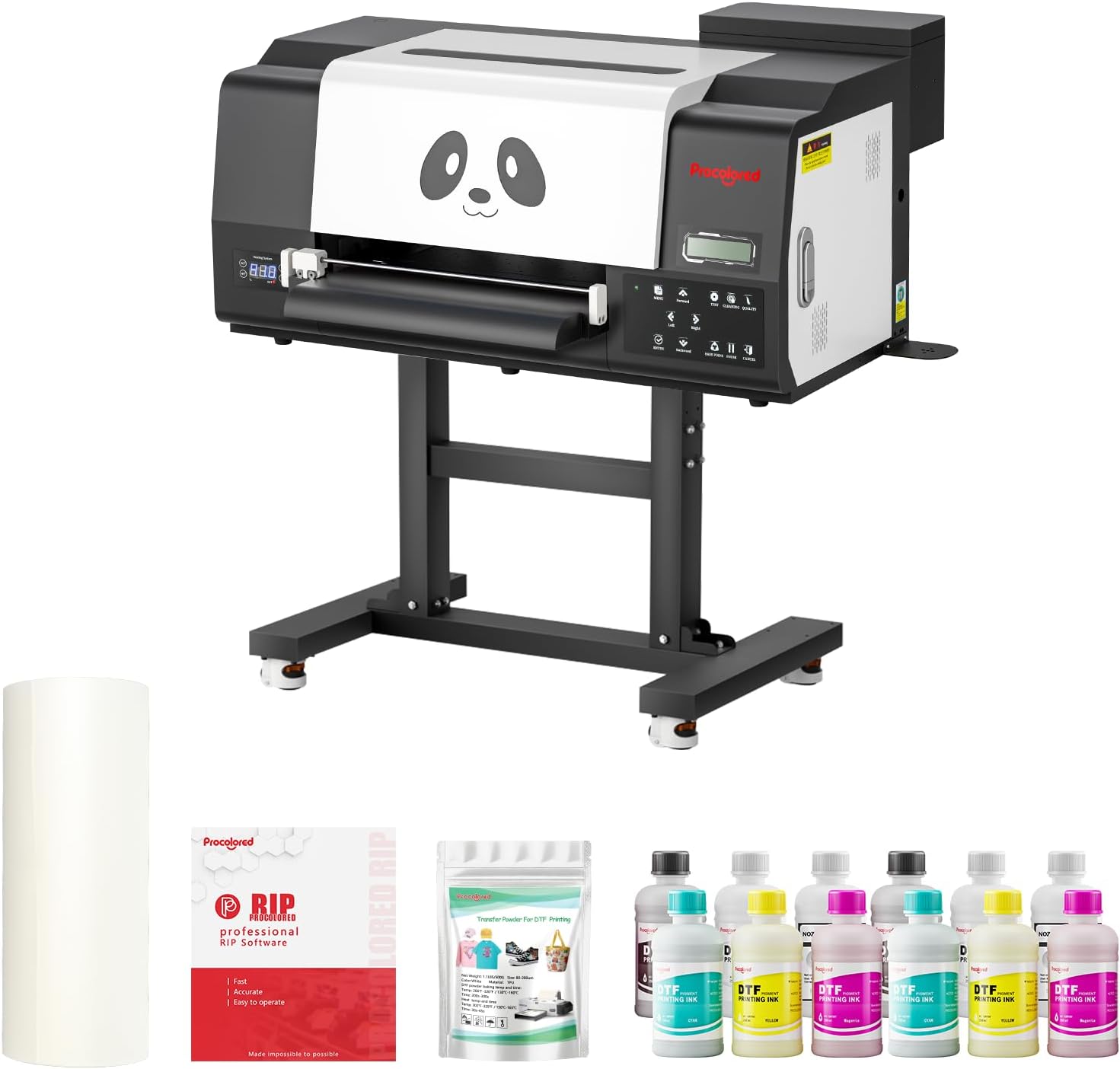If you’re ready to take your custom printing to the next level, the Procolored A3 DTF Printer might be the upgrade you’ve been looking for. Compared to smaller A4 models, this one supports larger prints, faster workflows, and more consistent output. It’s designed for serious creators and small business owners who need to handle more volume without investing in a full industrial setup.
Why This Printer Is a Big Deal
The most common frustration I hear from beginners who start with an A4 DTF printer is this: “I wish I had gone with A3 from the start.” That’s because once your shop or side hustle picks up, the smaller size quickly becomes a limitation. This Procolored A3 model gives you the space to print larger designs—like full-front T-shirts or tote bags—without compromising quality.
Product Overview

Procolored A3 L1800 DTF Transfer Printer
Print Technology: DTF (Direct to Film)
Max Print Size: A3 (11.7″ x 16.5″)
Ink Circulation: Built-in white ink circulation system
Operation: Semi-Automatic
Ideal For: Medium-volume apparel production, custom gift businesses, local merch shops
What I Loved About It
Pros
- Much larger print area than A4—great for full-front graphics
- Professional output with vivid colors and sharp detail
- White ink circulation reduces clogging and downtime
- Ideal for growing businesses that need consistent results
- Works with all standard DTF film and powder
Cons
- Larger footprint—requires a dedicated workspace
- Higher upfront cost than A4 models
- Still a learning curve if you’re new to DTF
- No built-in curing system—you’ll need a separate oven
Setup & Workflow Experience
The printer arrives well-packaged and includes the essentials to get started, including a set of inks and software (usually AcroRip). Setup is relatively straightforward if you’ve used a DTF or inkjet printer before. The white ink circulation system runs automatically and helps a lot with printhead health, which is a common issue in budget DTF machines.
It’s important to note that this is a semi-automatic printer, not fully automated. You’ll still need to manually apply powder and cure the film—but that’s standard in most setups under $2,000.
Price & Value
Pricing for the Procolored A3 DTF Printer typically ranges from $950 to $1,300 USD, depending on bundled accessories. While that’s a jump from entry-level A4 printers, the increased speed, quality, and format flexibility make it well worth the investment for creators looking to scale.
Final Verdict
If you’re serious about launching or growing a custom apparel business, the Procolored A3 DTF printer is a smart and scalable choice. It gives you the room to grow without overwhelming complexity. While not for absolute beginners, it strikes a perfect balance between affordability and professional results.
Buy Now on AmazonFAQ: Procolored A3 DTF Printer
1. How is this different from the A4 version?
The A3 version offers a larger print size (up to 11.7″ x 16.5″), which is ideal for bigger designs and faster batch output. It’s better suited for small to medium business use.
2. Does it come with RIP software?
Yes, it typically includes AcroRip, which is essential for printing with white ink and managing print layers.
3. Can I use it for cotton, polyester, and blends?
Absolutely. DTF printing works on all fabric types—cotton, polyester, canvas, blends—without the need for pre-treatment.
4. Is it beginner-friendly?
Some experience with printing or a willingness to learn is recommended. If you’re brand new to DTF, consider starting with an A4 model or watch several tutorials before diving in.
5. What maintenance does it require?
Regular printhead cleaning and running the ink circulation system daily are key to avoiding clogs and keeping your prints consistent.
6. Can it be used on Mac?
The included software is Windows-based. Mac users will need to run Windows through Bootcamp or Parallels.
7. What else do I need to get started?
You’ll need DTF film, DTF hot melt powder, a heat press or curing oven, and a well-ventilated workspace.